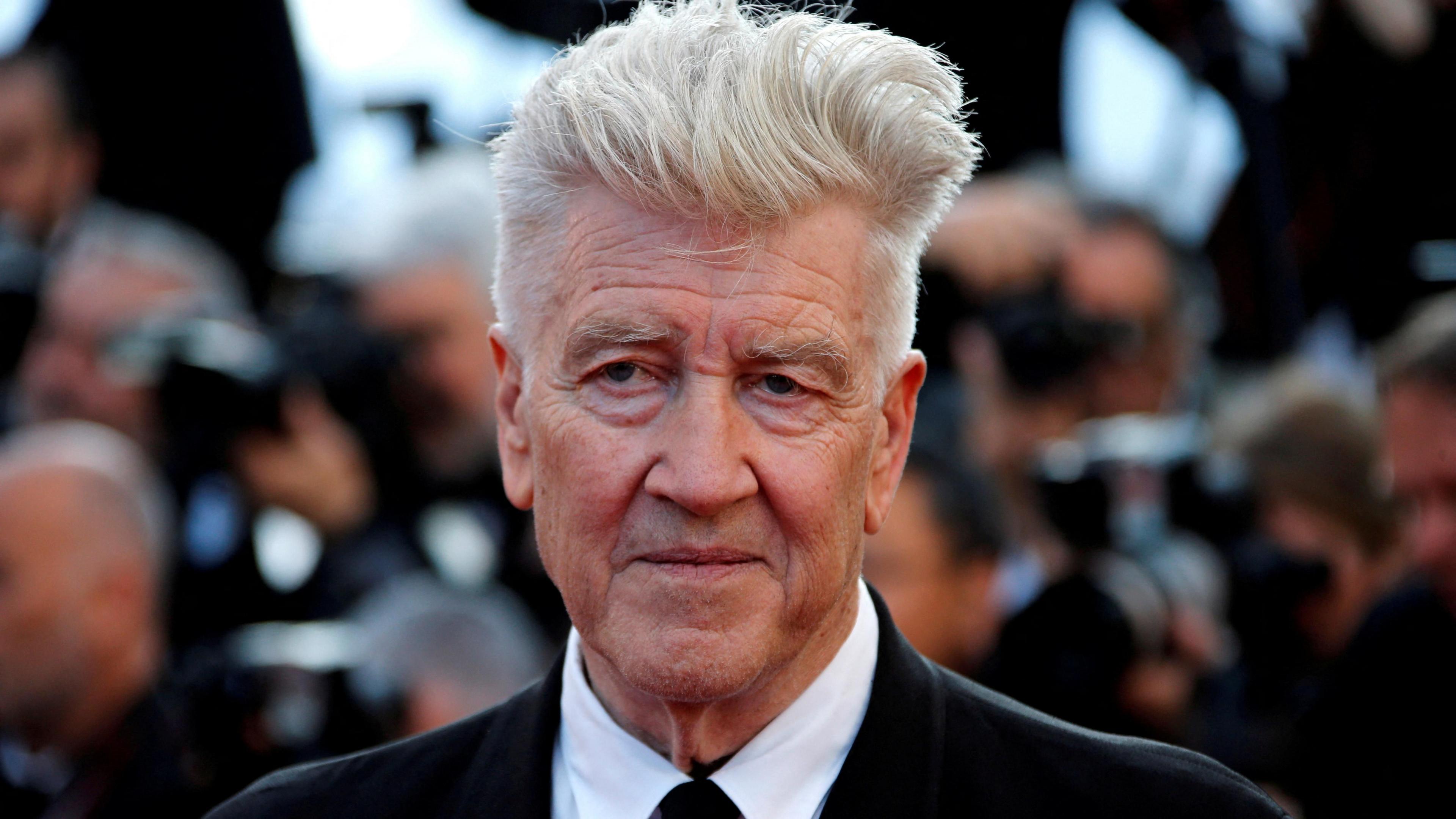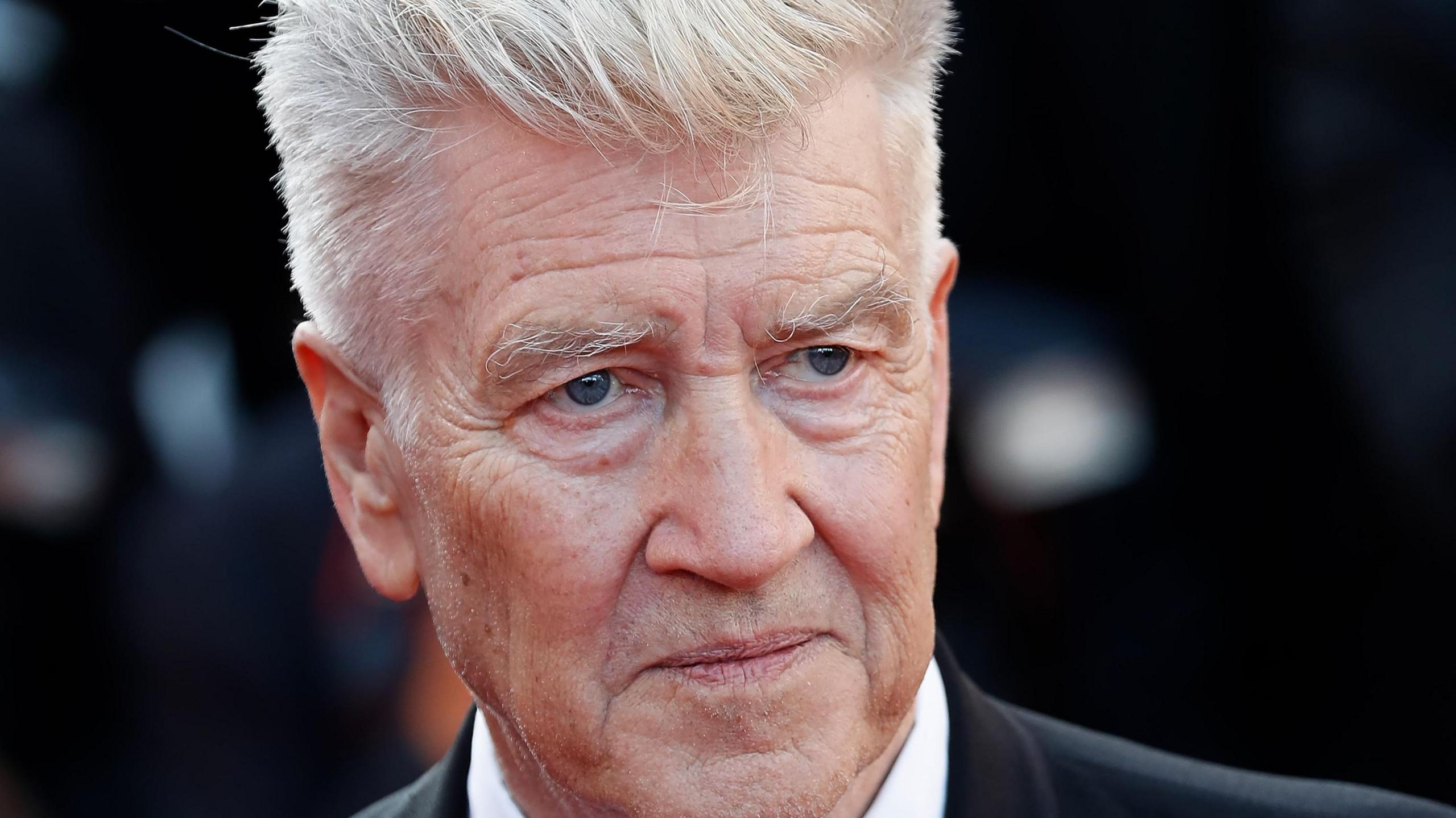Twin Peaks film director David Lynch dies at 78
"Do what you believe in" - David Lynch told Patti Smith, responding to a question about the success of Twin Peaks
- Published
David Lynch, the American filmmaker whose works include the surrealist cult classics Mulholland Drive and Twin Peaks, has died aged 78.
Lynch's death was announced on his official Facebook page by his family on Thursday.
"There's a big hole in the world now that he's no longer with us," the post said.
"But, as he would say, 'Keep your eye on the donut and not on the hole.'… It's a beautiful day with golden sunshine and blue skies all the way."
Lynch revealed in August last year he was battling emphysema, a chronic lung disease, from "many years of smoking".
Considered by many a maverick filmmaker, he received three best director Oscar nominations throughout his career for his work on Blue Velvet, The Elephant Man and Mulholland Drive.
Naomi Watts, who starred in Mulholland Drive, said: "My heart is broken".
"My Buddy Dave... The world will not be the same without him," the British-born actress wrote on Instagram, external.
"His creative mentorship was truly powerful. He put me on the map. The world I'd been trying to break into for 10-plus years, flunking auditions left and right."
She added: "It wasn't just his art that impacted me - his wisdom, humour, and love gave me a special sense of belief in myself I'd never accessed before."
His last major project was Twin Peaks: The Return, which was broadcast in 2017, and continued the TV series that ran for two seasons in the early 1990s.
"David was in tune with the universe and his own imagination on a level that seemed to be the best version of human," actor Kyle MacLachlan, who starred in many of Lynch's projects including Twin Peaks, wrote in tribute, external.
"He was not interested in answers because he understood that questions are the drive that make us who we are."
Describing Lynch as "an enigmatic and intuitive man with a creative ocean bursting forth inside of him", MacLachlan added: "My world is that much fuller because I knew him and that much emptier now that he's gone."
Lara Flynn Boyle, who played Donna Hayward on the show, described him as the "true Willy Wonka of filmmaking".
"I feel like I got the golden ticket getting a chance to work with him. He will be greatly missed," she said in a statement given to Deadline., external
Lynch won the prestigious Palme d'Or at the Cannes film festival for Wild at Heart in 1990.
Patricia Arquette, who starred in Lynch's 1997 neo-noir thriller Lost Highway, told SiriusXM's Radio Andy: "There's nobody like him."
'One of a kind'
The star of that film, Nicolas Cage, told the BBC World Service's Newshour programme he was one of the main reasons he fell in love with cinema.
"I used to see his movie Eraserhead in Santa Monica," he said. "He's largely instrumental for why I got into filmmaking. He was one of a kind. He can't be replaced."
Fellow film director Steven Spielberg said he was a "singular, visionary dreamer who directed films that felt handmade".
"The world is going to miss such an original and unique voice," he added in a statement to Variety., external
Director Ron Howard called him a "gracious man and fearless artist who followed his heart & soul proved that radical experimentation could yield unforgettable cinema".
Musician Moby, for whom Lynch directed the video for Shot In The Back Of The Head, said he was "just heartbroken".

Many of Lynch's films were known for their surrealist, dreamlike quality.
Eraserhead, his first major release in 1977, was filled with dark, disturbing imagery.
"While his imagination clearly has an eye for the viscerally potent, this remains an unremarkable feat by his later standards," a BBC reviewer said of the film in 2001.
In a May 2024 interview with BBC Radio Three's Sound of Cinema, Lynch described the process of working with late composer Angelo Badalamenti, who designed many of the soundscapes that accompanied his vision.
"And then I say, 'no that's still too fast, it's not dark enough, it's not heavy and foreboding enough,'" Lynch recalled.
His body of work was recognised at the Oscars in 2020 when he was given an honorary Academy Award.
The director said last year that, despite his emphysema diagnosis, he was in "excellent shape" and would "never retire".
He added the diagnosis was the "price to pay" for his smoking habit.
But his condition deteriorated within months. In a November interview, external with People magazine, he said he needed oxygen to walk.
Born in Missoula, Montana, Lynch first began a career in painting before switching to making short films during the 1960s.
Related topics
- Published17 January
